Pradeep Singh, M.D., Principal Investigator
singhpr@uw.edu (206) 221-7151
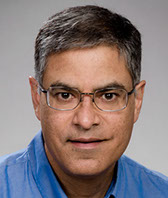
Pradeep’s work seeks to improve understanding of chronic bacterial infections, particularly those afflicting people with cystic fibrosis. Work in the Singh lab is also directed toward understanding antibiotic activity, and on developing new anti-infective approaches.
Pradeep is an experienced mentor of trainees including PhD post-doctoral fellows, MD fellows in pulmonary and infectious disease, graduate students, undergraduates, and high school students. Pradeep is also the Director of the Cystic Fibrosis Research and Development program and Director of the Cystic Fibrosis Pilot and Feasibility grant program at the University of Washington
Sarah Morgan, Ph.D., Senior Scientist
ssmorgan@uw.edu (206) 221-7702
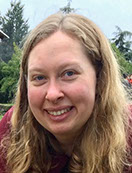
Sarah Morgan received a BS in Microbiology and a BS in Biochemistry from California Polytechnic State University, San Luis Obispo where she studied virulence factors in community-acquired methicillin-resistant Staphylococcus aureus. She received a PhD in Microbiology and Immunology for her work in the laboratory of Eric Krukonis studying how protein-DNA and protein-protein interactions modulate transcriptional activation of virulence factors in Vibrio cholerae. Sarah did her Postdoctoral fellowship in the Singh lab studying the genetics of P. aeruginosa in chronic wounds. Sarah transitioned to Senior research scientist in the Singh lab in 2018. Sarah’s research focus continues to be using genetic analysis to understand how P. aeruginosa adapts to chronic infections including chronic wounds and the lungs of cystic fibrosis patients after CFTR correction.
Hillary Hayden, Ph.D., Principal Research Scientist
hhayden@uw.edu

Hillary received a B.A. in Biology from Oberlin College and a Ph.D. in Molecular Phylogenetics from the University of Washington. As a postdoc and research scientist with Dr. Maynard Olson at the UW Genome Center, she studied and developed new technologies for detecting structural variation in bacterial and human genomes. She has expertise in bacterial genome and human microbiome sequencing and analysis, and in bridging the biological research and informatics communities to develop and evaluate data management and analysis tools.
Hillary led the Bacterial Diversity Project for the Regional Center of Excellence for Biodefense and Emerging Infection Diseases Research and served as Administrative Core lead for two NIH Cooperative Agreement research programs focused on emerging bacterial pathogens. Most recently, Hillary managed the Genomics Core for the Cystic Fibrosis Research Translation Center and Research Development Program. She currently supports studies of bacterial genetic diversity and evolution, and human microbiomes, in the Singh and Hoffman labs in the UW Department of Microbiology.
Matthew Radey, M.S., Data Scientist
marad@uw.edu

Matthew received a B.A. in English and Music, as well as an M.S. in Information Science from the University of Michigan, where he also spent time working for Michigan Medicine. Since joining the University of Washington, his project areas have included comparative genomics, antibiotic resistance, metagenomics, bacteria competition, and sequencing analysis methods. His work has focused on Pseudomonas, Salmonella, Escherichia, Acinetobacter, Burkholderia, and other disease-causing bacteria.
Sardar Karash, Ph.D., Postdoctoral Senior Fellow
sardar@uw.edu
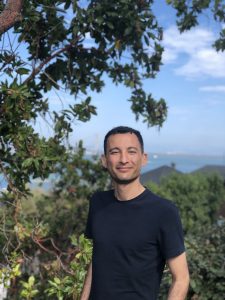
Sardar Karash received a PhD in Cell and Molecular Biology program from University of Arkansas, Fayetteville, where he studied bacterial functional genomics in Salmonella typhimurium. He did a postdoc at Microbiology and Immunology department at University of Iowa studying global T3SS gene expression in Pseudomonas aeruginosa. Sardar’s research focus is evolution of antimicrobial resistance in the lung of cystic fibrosis patients.
Sam Durfey, Ph. D., Postdoctoral Senior Fellow
sldurfey@uw.edu
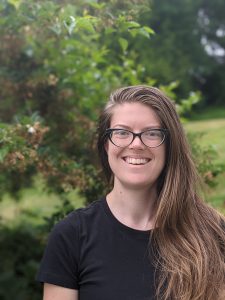
Sam recently received her Ph.D. in Microbiology from the University of Washington. She is wrapping up her work in Pradeep’s lab focusing on why chronic infections persist in people with CF who have their underlying CF defect corrected. She is particularly interested in the role of localized evolution within different lung regions in this persistence. Outside of the lab, she enjoys hiking with her dog and tending her numerous houseplants. Sam is the recent recipient of both the Charlie Moore Award and the Whiteley Fellowship.
Ellis Coulter, B.S., Research Technician
ecoult@uw.edu
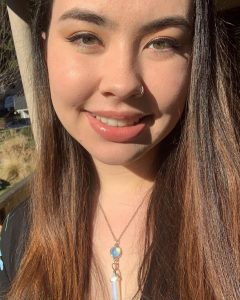
Ellis received her Bachelors of Science in Molecular Biology from the University of Washington in 2022. She has experience with studying the evolution of antibiotic resistance and wants to focus on the impacts of antibiotic resistance in CF patients. She plans on going to graduate school to continue with research or to pursue genetic counseling. Ellis enjoys spending time with family and friends (and pets), watching movies, and rock climbing.
Hannah Betts, Research Technician
hlbetts@uw.edu
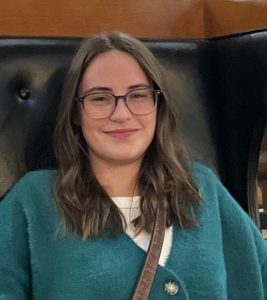
Hannah graduated from Harvey Mudd College with a Bachelors of Science in Chemistry and Biology in 2023. Her previous research included studying the bacterial general stress response, and she is now interested in investigating how the complex environment of the lung affects the behavior of bacteria that infect CF patients. She plans to eventually attend graduate school in molecular biology. Outside of the lab, Hannah enjoys baking and doing puzzles.
Grace Wang, Research Technician

Grace graduated from University of Washington in June of 2023 with a degree in Microbiology. Grace is studying the mechanism of antagonism of tobramycin resistance by azithromycin in clinical CF isolates.
Lydia Jack, Undergraduate Assistant
Lydia is currently a junior majoring in Materials Science and Engineering.
Saba Mir, Undergraduate Assistant
Saba is currently a junior majoring in Biology.
Richard Siehnel, Ph.D., Research Scientist Emeritus
siehnel@uw.edu
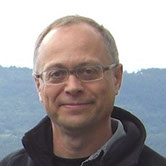
Richard’s research experience began at SUNY Buffalo investigating essential gene regulation, specifically the coordinated and balanced regulation of ribosomal genes in E. coli. As a postdoc and research scientist in Dr. Bob Hancock’s lab at UBC in Vancouver, he studied size exclusion limits for uptake of small molecules and porin activity and regulation. Combining these interests led to research in industry (Procter & Gamble Pharmaceuticals, Elitra Pharmaceuticals) investigating uptake mechanisms of antibacterial compounds and the use of genetic techniques to identify novel essential targets and design genetic screens for compounds active against these targets, followed by biochemical validation. In the Singh laboratory, Richard used a genetic screen to discover a previously uncharacterized negative regulator of quorum sensing in P. aeruginosa. He has also evaluated how certain genes might contribute to biofilm formation. Currently, Richard spends most of his time hiking and enjoying retired life, but we still consider him part of the team.